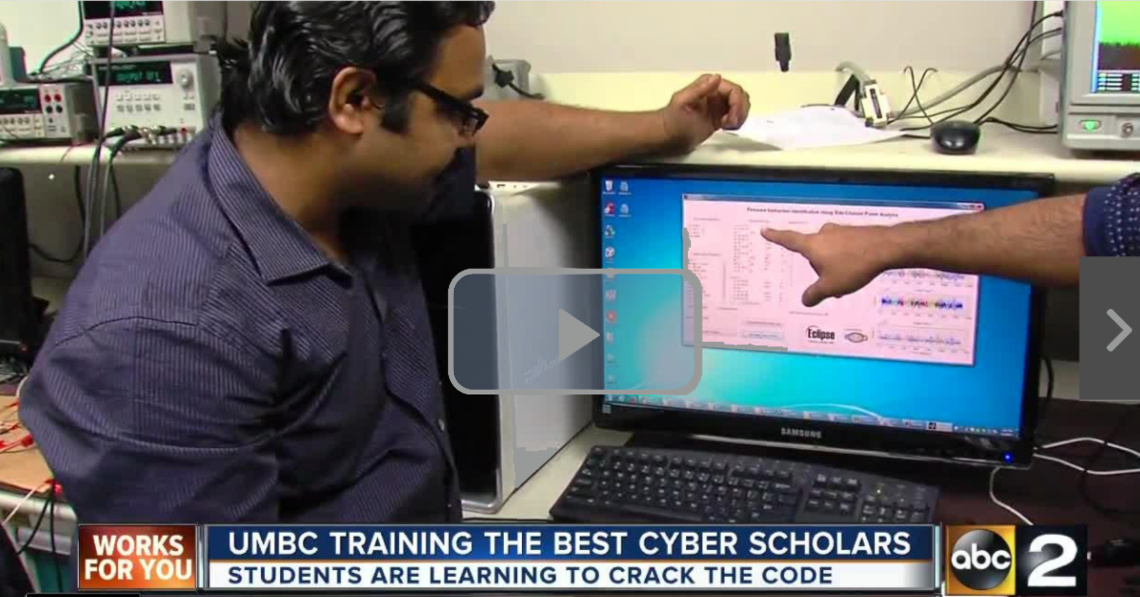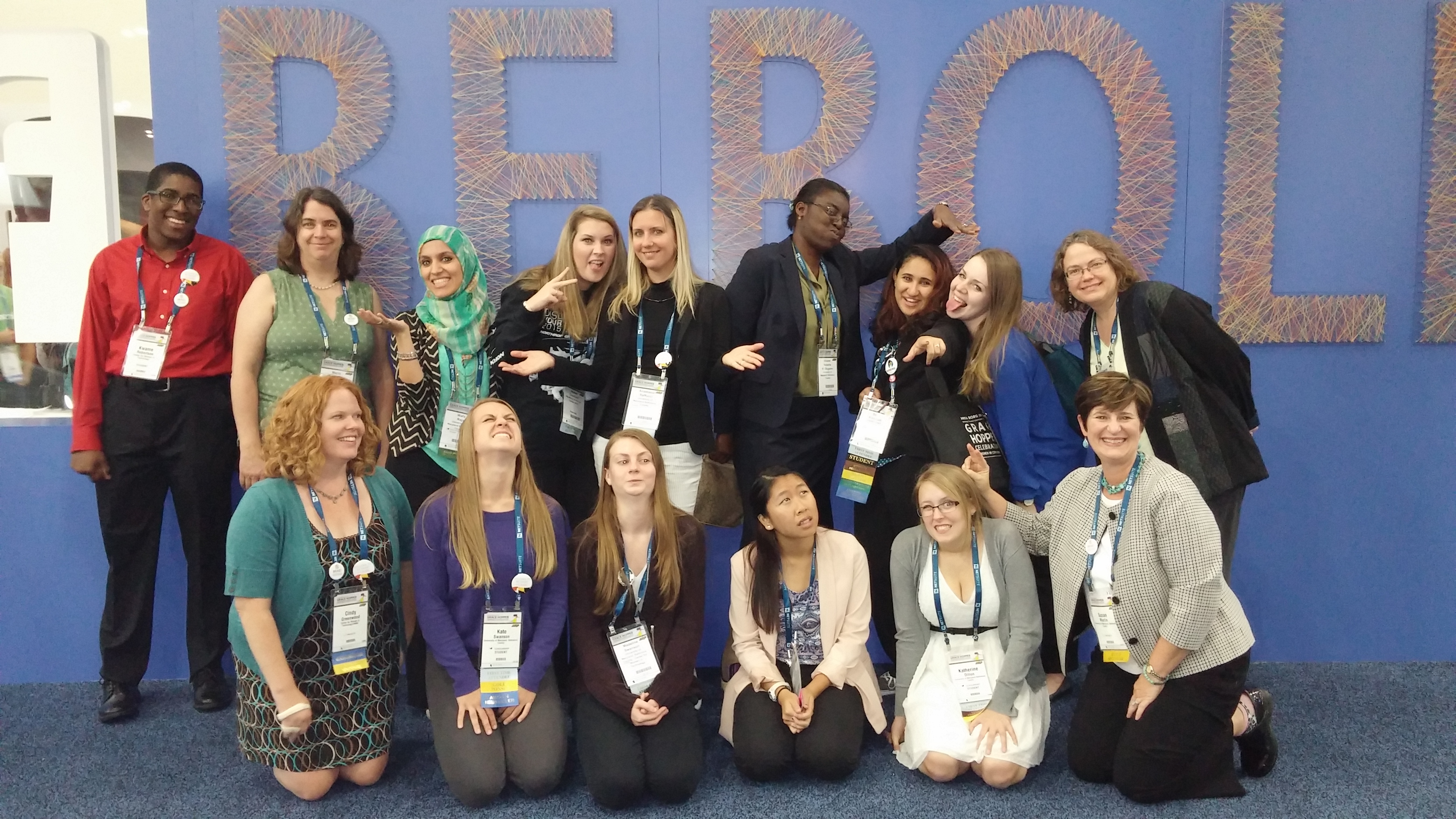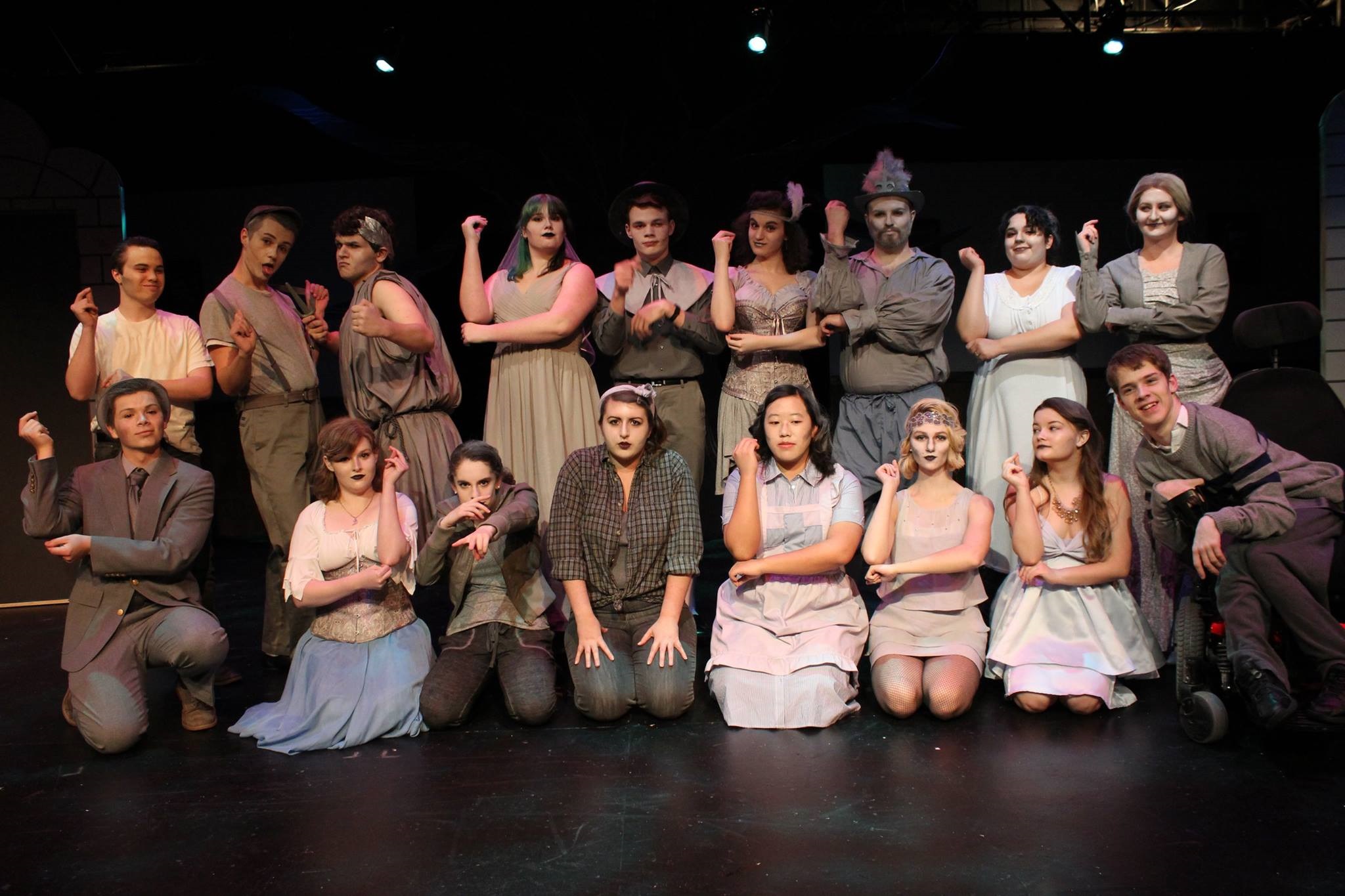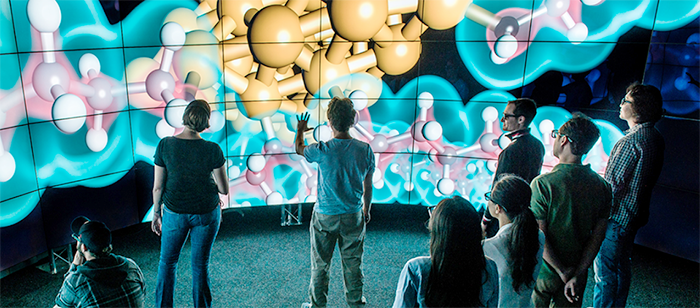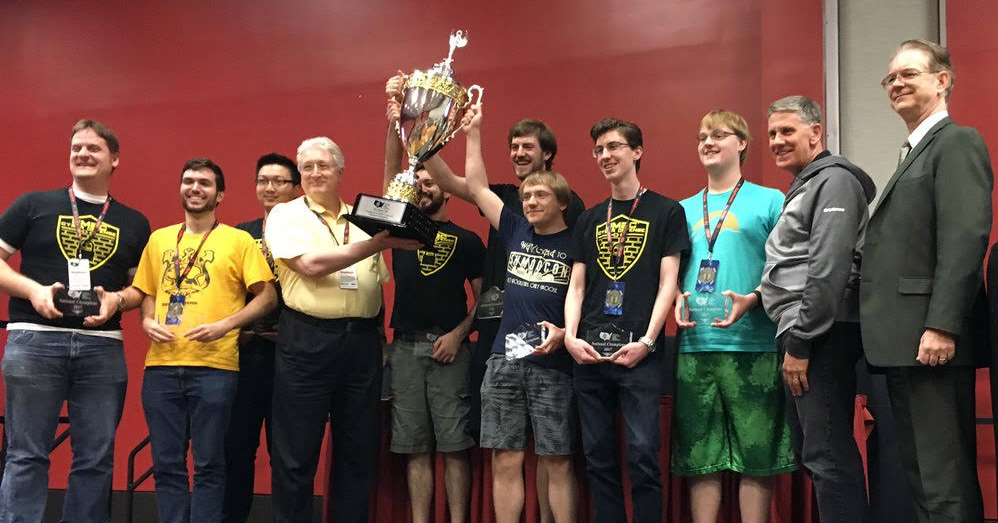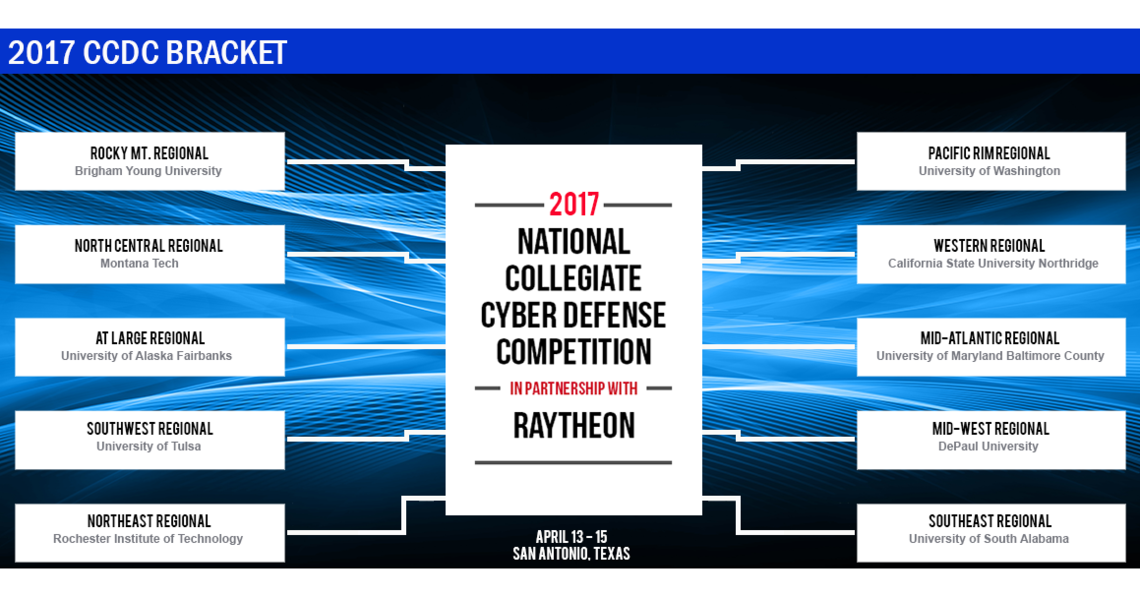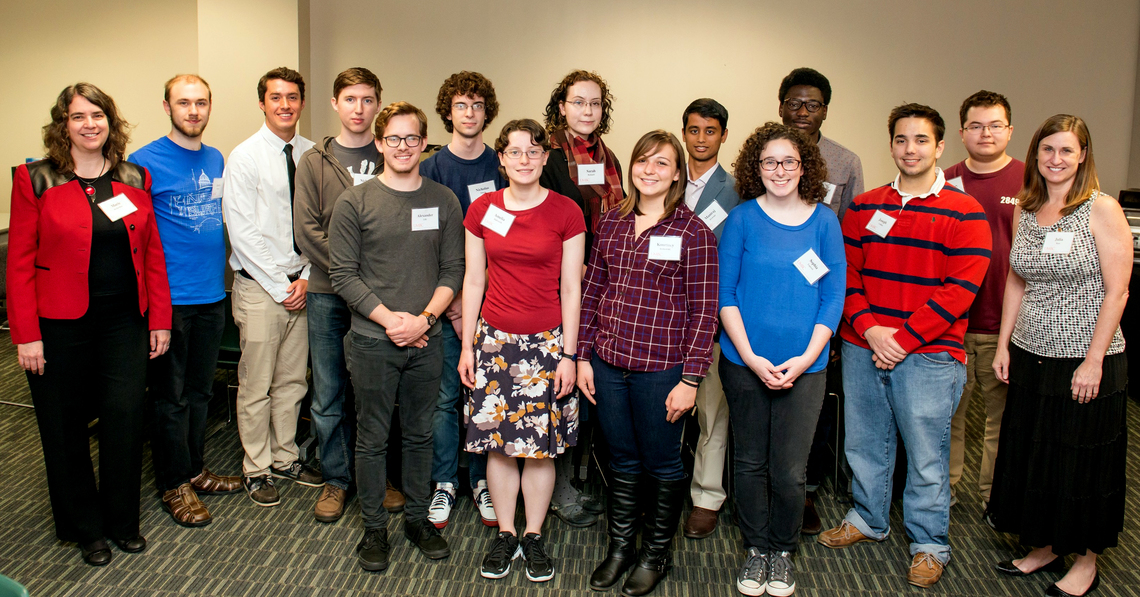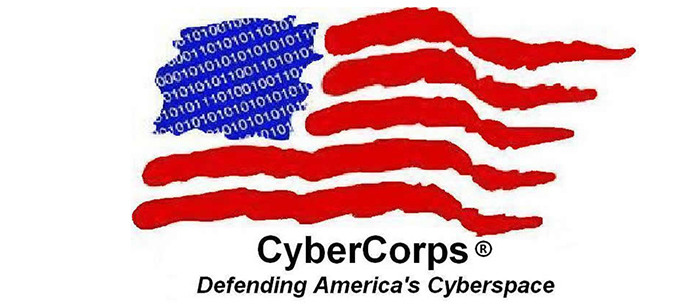
Applications sought for major UMBC cybersecurity scholarships
NSF CyberCorps: Scholarship For Service (SFS)
Scholarships for careers in cybersecurity. Earn full tuition, fees, stipends ($22,500 – $34,000), and more ($2000 books, up to $3000 health benefits, $4000 professional expenses). For BS, MS, MPS, or PhD in CS, CE, IS, Cyber or related fields. USA citizenship or permanent residency required. Contact Dr. Alan Sherman, who will send you an application.
In academic year 2017-2018, UMBC will support a total of about six additional SFS Scholars at the BS, MS, MPS, and PhD levels in CS and related fields. Each scholarship is potentially for up to the final two years (three years for PhD and combined BS/MS). Interested full-time degree students should contact Dr. Alan Sherman and visit the CISA scholarship page.
Each scholarship covers full tuition, fees, travel, books, and academic year stipend of $34,000 for MS/MPS/PhD, and $22,500 for BS. Applicants must be US citizens or permanent residents capable of obtaining a SECRET or TOP SECRET clearance. Each scholar must work for the federal, state, local, or tribal government (for pay) for one year for each year of award.
Awards made for 2017-2018 will be for one year only, with the potential of renewal if funding permits (we should know by August 31, 2017). The number of awards to be made will be determined by available funds, since there are differences in costs depending on level and in-state status (we have approximately $352,000 to award in 2017-2018).
All applications must be submitted in paper form with official transcripts and signed original letters on letterhead—no staples, folders, or binders.
Application Deadline: 12noon, Friday, July 14, 2017. If positions remain open after the deadline, we will continue to accept applications until classes start.
See https://www.sfs.opm.gov/ and http://www.cisa.umbc.edu for more details.
